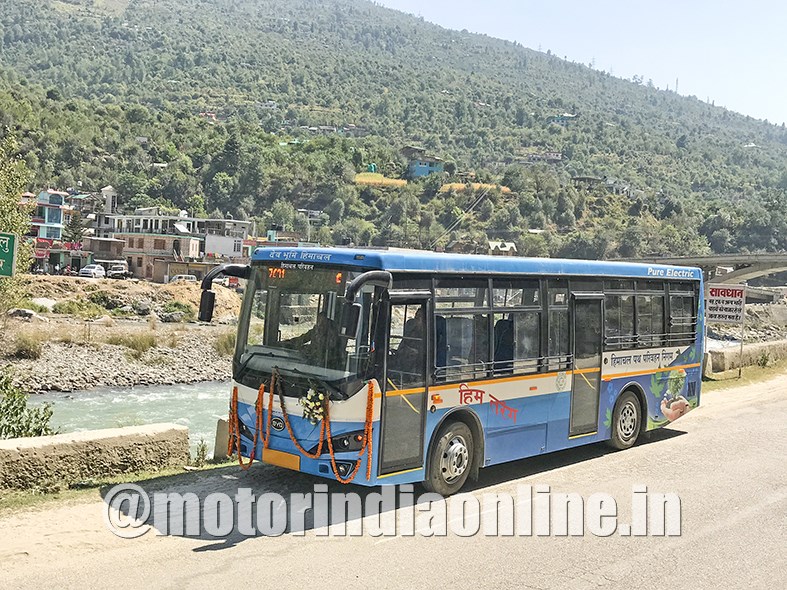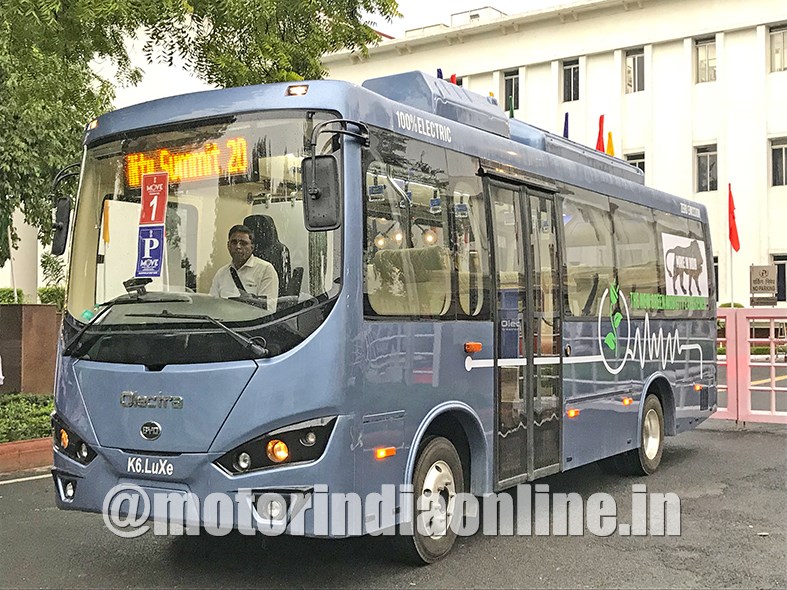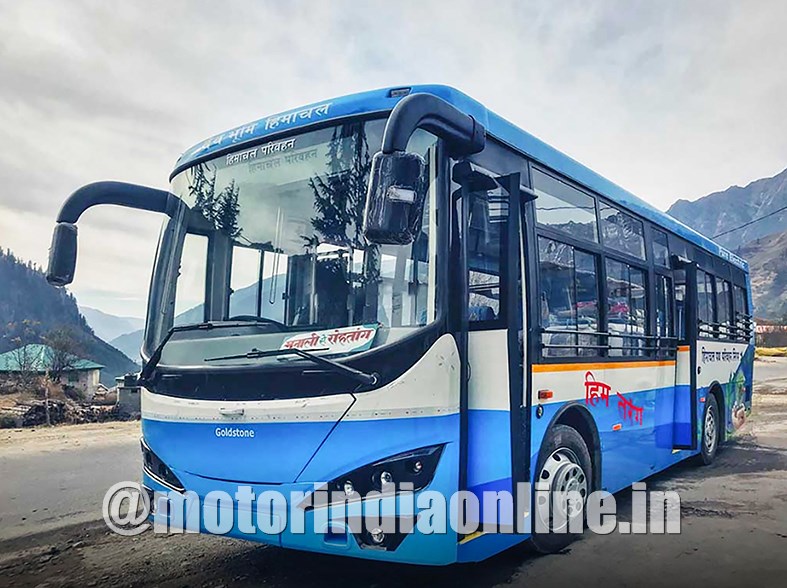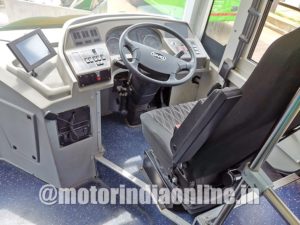When we talk about electric vehicles, BYD is probably one of the first names that pop up in our minds. The Chinese EV maker has held the title of the largest producer of ‘new energy vehicles’ – the way electric vehicles are referred to in China – for the last four years, with no signs of relinquishing the spot. The company has made strong in-roads into the Indian market with its electric buses and is laying a solid platform to spearhead the growth of e-mobility in the country. N. Balasubramanian spoke to Ketsu Zhang, Executive Director, BYD India, to find out how the company plans to script the country’s e-mobility future
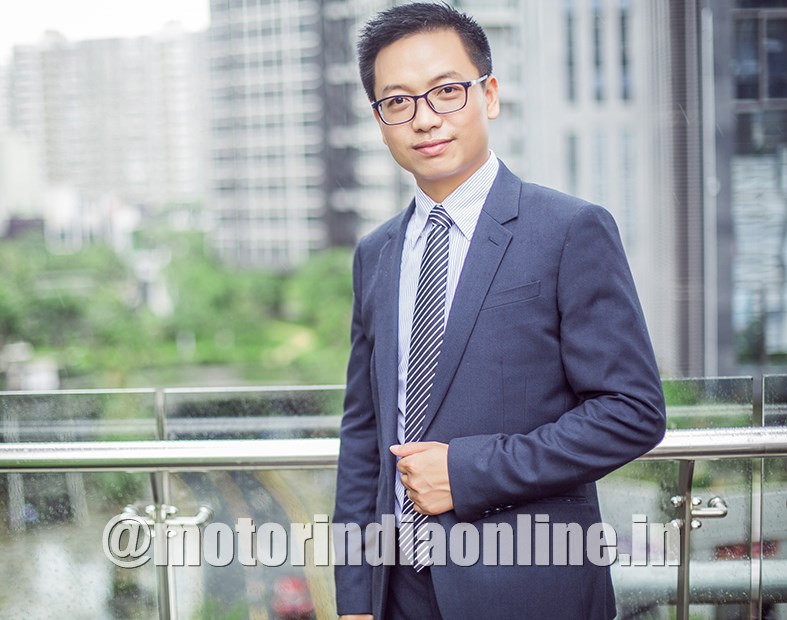
BYD seems to be quietly establishing a strong presence in the Indian market. Could you give us a brief background about your entry into the Indian market for electric buses and how things have progressed?
Founded in 1995, BYD Company Ltd. (‘Build Your Dreams’) is a high-tech multinational company devoted to technological innovations for a better life. Within 20 years, BYD expanded from a 20 to 220,000-employee company, with over 30 industrial parks worldwide, measuring an area of over 18 million sq. metres. As of June 2019, BYD has submitted applications for over 26,000 patents and currently owns about 17,000 patents. BYD established in India in March 2007 in Chennai and set its first office in New Delhi. The Indian subsidiary has two factories, covering more than 140,000 sq. meters. Bearing the strategic layout of BYD Group in India and the whole of South Asia, BYD’s India branch has gradually developed into the group’s regional headquarters in South Asia, providing a strong guarantee for the realisation of the group’s localisation strategy in South Asia.
Which are the cities that are currently plying your buses?
As of today, thanks to the support of our local partners, BYD India has successfully piloted our all-electric buses in Bangalore, Rajkot, New Delhi, Hyderabad, Goa, Cochin, Chandigarh, Vijayawada, Manali, Mumbai, Surat, and other cities. As BYD India along with local partners continues to create values for India and to provide a needed and sustainable way of transportation for Indian people, we have full confidence that more and more Indian people will accept and embrace clean transportation. BYD’s electric coach products have recently started testing in India as well. As of now, the total range of all our buses running on the road in India is more than 6 million kilometres, with all the buses in good condition and performing well.
The Indian market has traditionally been a tough one for global OEMs to crack, especially on the bus side, barring couple of exceptions. What according to you are the three most important aspects to be successful in India?
At BYD, we see a huge potential in India for the e-vehicle business and we feel that India will be one of the biggest markets for e-vehicles in the future. We believe that many competitors will see the potential of electric mobility given that the country is very keen on clean energy solutions to battle pollution and reduce conventional energy consumption. Thus, BYD has partnered with Hyderabad-based Olectra for manufacturing and supplying e-buses. The BYD and Olectra partnership was the first to introduce pure electric buses in India. Over the past few years, the partnership has been extremely fruitful for both companies and has enabled the set-up of local designing, research and development, and manufacturing of electric buses in India.
In the electric bus sector, together with Olectra, BYD will look to put more and more electric buses into successful commercial operation, providing better after-sales service, and give more and more awareness to the public. Electric mobility is a long journey for every OEM, battery suppliers, government bodies, bankers, component suppliers, etc. It’s difficult and impossible to succeed with only one company’s effort. We hope that all the parties in this industry will work together to establish the ecosystem in India. We think the success of the industry will give us a chance to succeed in India. BYD is ready to cooperate with all the people who are committed to this new industry to contribute our effort in this long journey.
From a product standpoint, how is BYD better than competition? What are your product USPs and what difference are they making in the Indian context?
We have a long history of battery and EV research and development and production. With over 24 years of battery and 16 years of automobile research and development and manufacture, BYD is a leader in the global EV industry and market. BYD has mastered three core technologies of EVs, which are battery, electric motor and electric control system. As of June 2019, BYD has delivered more than 50,000 pure electric buses and coaches of different varieties to partners around the world.
Next comes our world-recognised industrial accomplishment which has made BYD a global top-tier EV manufacture. In 2018, BYD sold 247,811 units of new energy vehicles. BYD’s sales of new energy vehicles have been ranked first in the world for four consecutive years from 2015 to 2018. BYD’s effort in building a more sustainable way of transportation and lifestyle has been recognised by other business giants as well. One of the examples is that on July 19, 2019, BYD and Toyota announced that they have signed an agreement for the joint development of battery electric vehicles.
BYD buses are state-of-the-art and have a 12-metre body length and 18-ton weight with one-step low-floor interior. Electric power consumption is less than 1.3 kwh per km. BYD’s self-developed lithium power battery powers the buses. The battery has one of the longest drive ranges of 250 km (155 miles) on one single charge, under urban road conditions. The bus also has regenerative braking system that enables energy recovery and extends driving range. BYD electric buses take approximately four hours to completely charge, using DC charging equipment. The electric buses also contain the most efficient powertrain that is powered using batteries available on the bus. Another interesting feature is that our electric buses are silent and safe. This enables the buses to find usage at airports, IT corridors, pharmaceutical hubs, hospitals, schools and green industrial parks.
In the Indian context, BYD has the following USPs:
- Compared to the competition, our powertrain with LFP battery technologies including BMS, motors and controllers are more reliable and have been proved successful in the global market; since the key and main systems have been developed by ourselves, it’s easy for us troubleshoot issues and improve the systems as per the local conditions.
- We have both 80 KW onboard AC charger and 150 KW off-board DC charger on the same bus. We can charge the bus during the night hours (off-peak time) with slow charger, which is good for battery as well as the grid. Meanwhile, we can recharge the bus with a DC fast charger during the operation daytime (peak time) if necessary. In principle, we think charging the bus during the off-peak time at night hours is always preferred. And also, after years, when the battery capacity decreases, we can make good use of the DC fast charger to meet daily operations.
- The powertrain including battery, motors, controllers and the other key and main components are all developed and made in-house and therefore we definitely ensure the availability of the spare parts during the lifetime of the bus. But if we get different parts from different suppliers, some of the suppliers may be very small and not sustainable and in that case the lifetime service and spare parts availability may be a big difficulty.
What has BYD done on the charging aspect and how fool-proof has the system been? What more do you think needs to be done in this regard for better adoption of EVs?
The charging infrastructure in India is definitely not well-established; thus we believe electrification in public transportation sectors and the B2B sector is more reasonable and reliable at the current stage. BYD is supporting local partners and customers to build charging stations or networks and service centres in different locations for the operation of EVs as well as providing charger maintenance services. We think one of the other important things for charging infrastructure is that the government should give more benefits to the investors on land, electricity connection, and subsidy on electricity prices. The government should also give higher priority to developing charging infrastructure in the planning stages of all municipal corporations. In the future, it will be as important an infrastructural need as the supply of water or gas.
How many production or assembly sites do you have in India? What is the total capacity of vehicles that you can roll out in a year? What is the level of local content and do you see this increasing in the coming times?
BYD and our local partner Olectra have production factories for buses both in Tamil Nadu and Telangana. As of now, we can manufacture more than 2,000 buses every year. Olectra along with BYD’s support is now in progress of setting up a much larger bus factory to meet the huge market demand. With the increasing localisation rate and growing ecosystem of Indian electric vehicles, we are optimistic of hitting a bigger number in the near future. With increasing localisation and sales volume, we are also confident of providing a competitive price that will be suitable for the Indian market.
Are all your buses sold exclusively by your Indian partner Olectra? How do you handle the after-sales service support? What kind of infrastructure in terms of workshops, manpower, etc., have you created for the same?
BYD has collaborated with Olectra to help build and sell the BYD electric bus series. This partnership has proved extremely fruitful for us, as it has helped us secured 39% of the electric bus tenders in India. In the past few years, the partnership has realised the local design, research and development, manufacturing of electric buses in India, and even established battery-manufacturing facilities here. The partnership has successfully piloted electric buses in Bangalore, Rajkot, New Delhi, Hyderabad, Goa, Cochin, Chandigarh, Vijayawada, Manali, Mumbai, Surat, and other cities. At present, the BYD-Olectra partnership has gained a 52% market share of electric buses commercially operating in India.
We are working very closely with our clients and partners for after-sales support which includes but is not limited to maintenance staff training, on-site support and regular meetings for feedbacks. After-sales service is always one of the most important aspects for any OEM companies; thus we are giving importance to this. This is a very early stage, so we are still planning our service network carefully and accordingly. We have set up a technical support engineering team in India. We are also trying to tie up with some local colleagues to train more and more skilled technicians for this industry. We have also set up a warehouse for spare parts in Chennai at this point in time and will extend this to other places in the near future.
